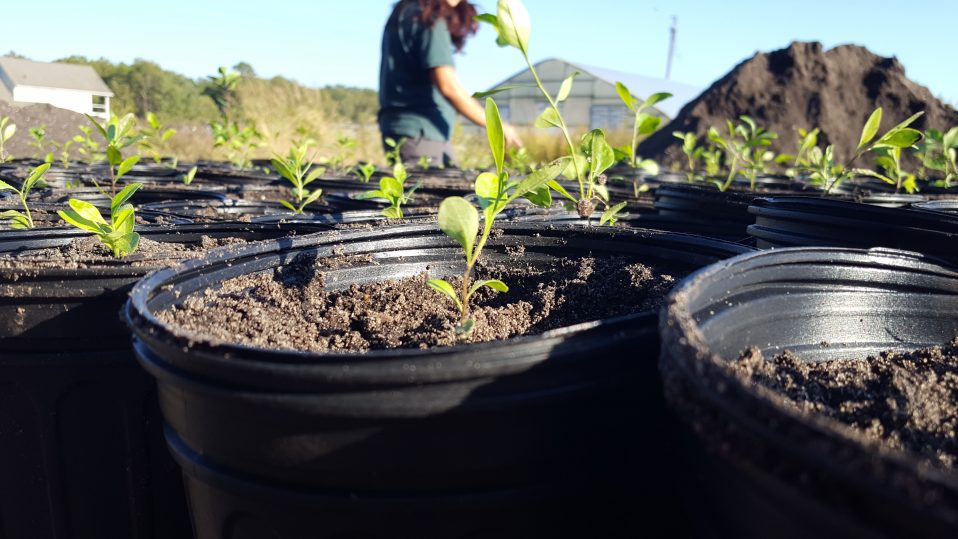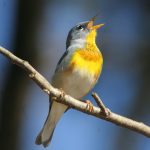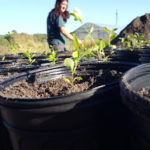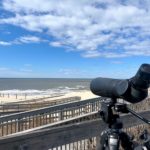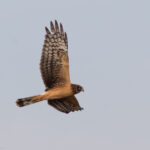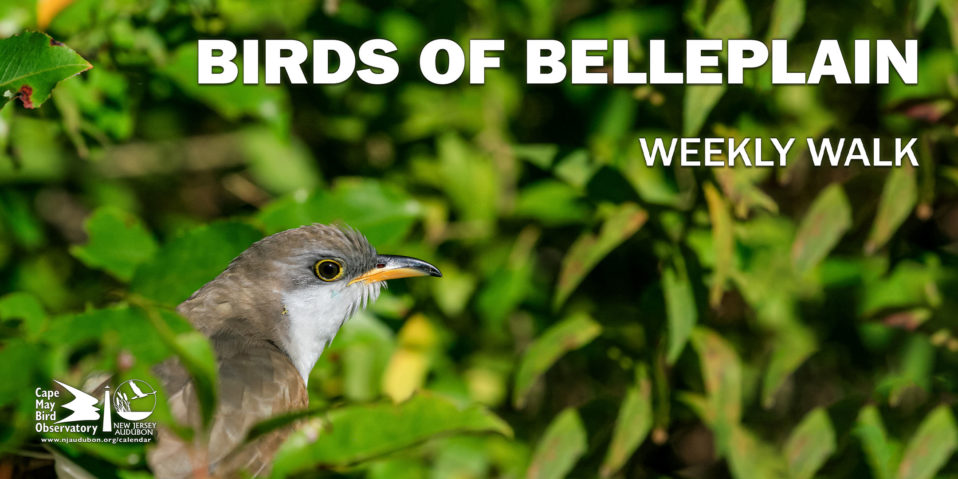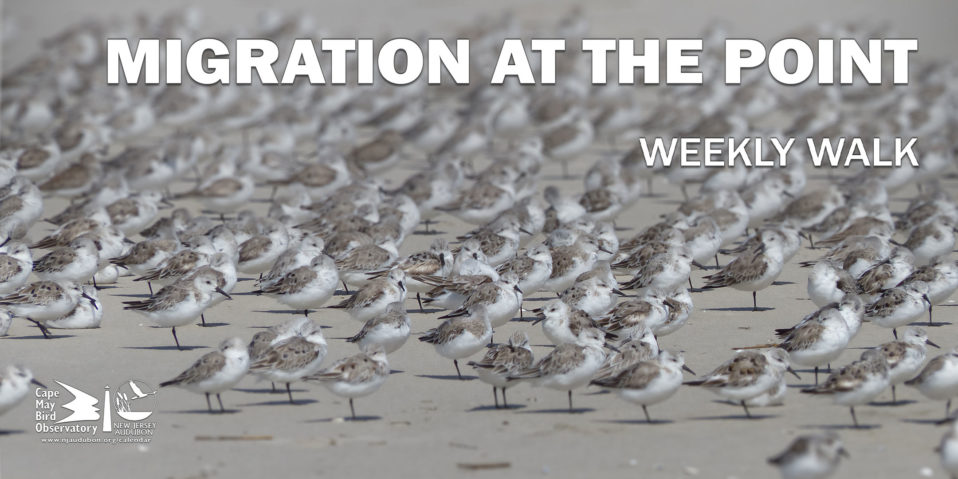By Brittany Dobrzynski, Stewardship Project Coordinator – South
Conservation work continues along Seagrove Avenue at Cape May Point State Park, where New Jersey Audubon has been removing non-native invasive plants. After years of work, and more to come, the re-establishment of native plant communities is underway!
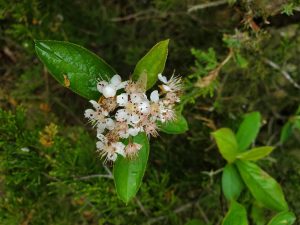
Red chokeberry is one of the native species planted at Cape May Point State Park. Photo by Kristen Meistrell
Some of the non-native invasive plants have been removed from this area, giving new light and resources to native plants. Species like American holly, sassafras, sensitive fern, and goldenrod are all naturally regenerating and flourishing in areas that were previously overrun with invasive vines. Recently, Red Chokeberry (Aronia arbutifolia) and Arrowood (Viburnum dentatum) found their new homes and were planted in select areas where invasive control has been most effective. These flowering shrubs will provide resources to migrating and breeding birds and insects throughout the growing season, including nectar in the spring and nutrient-dense fruits later in the season. Planting native species for restoration is not a new concept; however, these shrubs are unique because they were all grown from locally collected, native seed. In fact, all the plants that will be installed through this restoration project will be genetically adapted to Cape May County.
Through special permissions, staff collected seeds from native shrubs in C ape May County following the Bureau of Land Management’s Seeds for Success protocol. This protocol requires seed collections to be sustainable by leaving 80% of ripe seed on the plant and collecting from adequately sized populations. This process ensures plenty of seeds remain to feed wildlife and continue to allow the plant to spread.
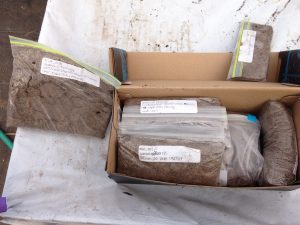
Seeds are stratified prior to planting. Photo by Brittany Dobrzynski
Following collections, seeds were cleaned and stratified to break dormancy. In nature, a seed will go through multiple freeze and thaw cycles as it lays in the soil, where it will eventually shed its seed coat to germinate in the spring. Stratification mimics this natural process by rotating between moist, dry, warm, or cool storage. Once stratified, New Jersey Audubon partnered with Clemenson Farms Native Plant Nursery in Estell Manor to grow the shrubs to a half-gallon size. Once the shrubs were grown, the Natural Resources Conservation Service’s Plant Materials Center in Cape May Court House lent greenhouse space to store the shrubs until they were ready to be planted.
Although this method is much more involved than simply purchasing plants, these shrubs are well adapted to the local soils and climate of Cape May County, and will spend less time acclimating, and more time setting deep roots. Important phenology like leaf and bud break, flowering time, and senescence are adapted to the growing conditions within this eco-region. By growing plants from seed, the project area will boast a high level of genetic diversity to benefit the health and resiliency of the landscape, as individual plants will more readily adapt to any unusual environmental stresses.
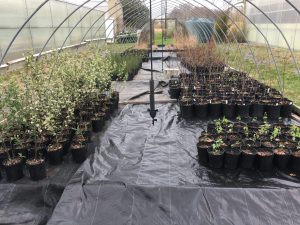
Native shrubs were grown from seed collected from wild populations in Cape May County. Photo by Brittany Dobrzynski
A pilot project was conducted in 2016 through funding from the National Fish and Wildlife Foundation. This project was deemed successful, so in 2019 and with support from Atlantic City Electric, additional seed collections commenced and will be ongoing. While the focus remains on understory shrub species, future collections will expand to include perennial forbs and grasses. Stewardship staff are always scouting for suitable native plant populations to collect from so we can continue to grow a new generation of native plants in Cape May Point State Park.
If you would like to learn how you can get involved to aid the effort, contact Steven Garcia, Stewardship Technician, [email protected] to join our mailing list for upcoming volunteer days. Check out our project page at https://njaudubon.org/cape-may-point/ for information!




